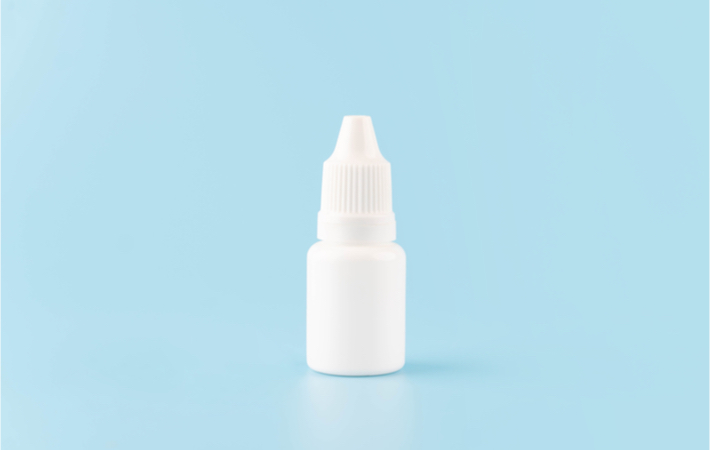The Best Treatments for Managing Eye Allergies
Allergies can cause disruptive symptoms, from constant sneezing to a running nose. But when your allergies start affecting your eyes, it can be challenging to carry out everyday tasks. Eye allergies can aggravate other eye conditions, including dry eye and an increased risk of eye infections.
Diagnosing your eye health with an eye exam is only the first step in controlling your symptoms. Your optometrist can also recommend and prescribe options for treating your eye allergies. Read on to take a closer look at some effective treatments for your allergies.
How Allergies Affect Your Eyes
When you suffer from allergies, it affects more than your nose. Eye symptoms can occur even if the allergen doesn’t directly touch your eye. Your sinuses are located in hollow spaces around and behind the eyes. So when you’re sinuses are inflamed, it can easily affect how your eyes feel.
You can also experience eye allergies because of direct eye contact with an allergen. Allergic conjunctivitis is a noninfectious form of conjunctivitis (pink eye). The condition describes inflammation or swelling of the conjunctiva, a transparent tissue covering the sclera (whites of your eyes). The most apparent symptom is red or bloodshot eyes.
Symptoms of allergic conjunctivitis usually include:
- Burning eyes
- Itchy or irritated eyes
- Redness (or pink eyes)
- Watery eyes
Puffy eyes or allergic shiners, typically occurring when you wake up, are another common symptom. Allergic shiners can also appear bruise-like, with dark circles under your eyes.
Allergies or allergic conjunctivitis can occur due to any allergy. However, the types of allergens you react to and how severe your symptoms are depends on your unique immune response. Additionally, you can experience a different level of reaction each time you encounter an allergen.
For example, you may experience mild symptoms initially but have a severe reaction with a second encounter. While most allergic reactions occur within minutes of allergen exposure, it’s also possible to have a delayed response occurring several hours later.
Preparing to treat your allergies, mild or severe, is crucial for preventing worsening symptoms.
Allergy Eye Drops
Over-the-counter decongestant eye drops, oral medications, or artificial tears can provide short-term relief for symptoms. Your optometrist can recommend over-the-counter eye drop brands that can work for you, including preservative-free brands such as Bausch + Lomb Soothe with antihistamines.
Artificial tears can help wash away allergens that have directly touched your eye but may not be an effective long-term solution. However, if you already have artificial tears at home, patients can experience fast relief from mild eye irritation.
Patients might benefit more from prescription treatments for recurrent or severe allergy symptoms, such as eye drops with antihistamines and a mast cell stabilizer. The combination can be more effective than over-the-counter medications with antihistamines only.

Medicated Contact Lenses
Eye allergies can make wearing contact lenses challenging. When your eyes are irritated, dry, or uncomfortable, inserting a lens can aggravate symptoms. In some cases, it’s best to switch to your backup eyeglasses to give your eyes some rest. But contact lenses with built-in allergy medication are also an option.
ACUVUE Theravision with Ketotifen is a daily disposable lens that can relieve itchy eyes within minutes. Notably, the solution is preservative-free, as preservatives can sometimes worsen dry or irritated eyes.
We carry ACUVUE lenses at the Calgary Optometry Centre! Talk to your optometrist if you’re having trouble wearing your contact lenses because of allergies. We can discuss your options for improving your contact lens comfort.
Cold Compress
A simple but effective at-home solution for eye allergies is a cold-water compress. The cold can soothe symptoms by shrinking irritated tissue, reducing the feeling of irritation and itchiness.
Find a clean cloth and soak it in cold water. Test the temperature on your skin, as it should be comfortable enough for prolonged exposure. You may choose to lie down or sit in a comfortable chair.
Apply the soaked cloth to closed eyes, letting it sit for about 10 minutes. You can repeat as often as you need to, typically a few times throughout the day.
Allergy Shots
Allergy shots are immunotherapy for reducing symptoms of allergic rhinitis (allergies or hay fever). The treatment cannot cure your allergies but can result in a more manageable reaction. As a result, patients might combine their treatment with other solutions, such as artificial tears or antihistamine eye drops.
Patients must undergo allergy testing to determine if they qualify for allergy shots. Then, an allergist (immunologist) will create a customized injection with small doses of substances you’re allergic to—such as pollen or animal dander. Patients initially receive injections 1–2 times per week, with the amount of allergen in the shot gradually increasing.
Patients receive weekly shots for about 4–6 months. Then, the frequency is typically reduced to once every 2–4 weeks for the next 4–6 months. After this period, an allergist assesses the patient’s response to the treatment. When allergy shots prove effective, patients continue to receive monthly shots for up to 3–5 years.
Discover More Allergy Relief
While there are many treatments available for allergy treatment, what works best for you may be unique. Your optometrist can recommend a personalized treatment plan based on your eye health and lifestyle.
After an eye exam and discussion, your optometrist can get to know your eye care needs and allergy symptoms. Then, they can recommend the best possible treatment for your eye allergies. Contact the Calgary Optometry Centre today for allergy relief.




